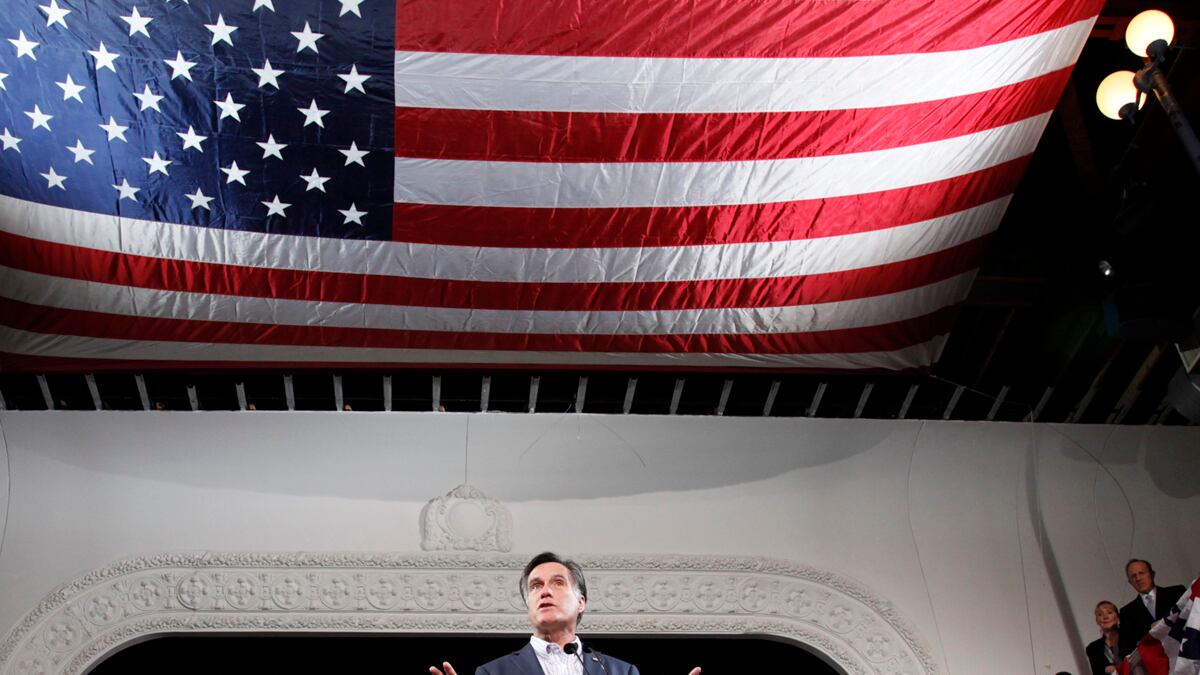What happened to Mitt the Inevitable?
The most striking thing about his dismal, third-place finish in the Minnesota caucuses isn’t the contrast with his big win in Florida just one week ago; it’s the inexplicable collapse of his Gopher State standing since his triumphant finish in the same venue four years ago.

On Feb. 5, 2008, Mitt Romney swept to decisive victory in the Minnesota caucuses, winning support from 41.4 percent of the participants and locking up all 38 of the convention delegates at stake. He easily trounced his most important rivals: John McCain (22 percent), Mike Huckabee (20 percent) and Ron Paul (16 percent).
ADVERTISEMENT
This time, Rick Santorum’s chronically underestimated and severely underfunded campaign topped Romney by nearly 3–1 (45 to 17 percent) and even the crotchety crank Ron Paul (who won 27 percent of the vote) easily bested the putative GOP frontrunner.
For Romney, the raw numbers tell an even more alarming tale. In the midst of the 2008 campaign, 25,990 Minnesotans put their trust in Governor Romney; this year, he drew only 8,090 votes— meaning that nearly 70 percent of his former supporters decided to abandon his cause, either by staying home or transferring their allegiance to some other candidate. Similarly, in the Missouri primary, Romney went from 172,229 votes in '08 to a shockingly paltry 63,826 on Tuesday night.
In Colorado, a similar if less drastic pattern applied: four years ago, Romney won 60 percent of the caucus participants, for a total of 42,218 votes, but this time, nearly half of those fickle backers deserted him and he drew only 22,875 votes (or 35 percent of the smaller overall turnout).
How to explain these dramatic desertions in three states where the Romney forces looked confident, well-organized, and poised to repeat their triumphs from four years ago?
It’s not possible to argue that Mitt lost support because he faces more formidable competition in 2012 than in 2008. Whatever the virtues of Santorum and Gingrich, it’s not plausible to argue that they’re inherently more formidable than John McCain and Mike Huckabee, while Ron Paul is still Ron Paul with much the same dedicated but limited following.
What, exactly, did Romney do to alienate half of his former Colorado backers and two-thirds of his onetime supporters in Minnesota and Missouri?
It wasn’t that he suddenly committed the unpardonable sin of Romneycare: that controversial program was actually enacted in 2006 before Mitt left the governorship and ran for president, so it was a far more recent (and relevant) memory in the 2008 campaign.
On no significant issue has Romney moved to the left or to the center over the last four years; his platform of 2012 offers a program of conservative reform far bolder and more substantive than any ideas he put forward in 2008.
Mitt’s precise problem came into focus for me with an email from an angry listener to my radio show who upbraided me for my open support of Romney as the most electable candidate against Obama. “We remember what you did to us last time, and we won’t let you get away with it again!” she wrote. “This time you’re trying to ram the RINO, Romney, down our throats and last time it was McCain. It was because of people like you that we got stuck with McCain, when we could have had a real conservative who would have beaten Obama!”
And who would have been that “real conservative” back in the distant days of 2008?
None other than … Mitt Romney, the “conservative’s conservative ” eagerly endorsed by Sen. Jim DeMint and nearly all of my talk-radio colleagues, including Rush Limbaugh, Sean Hannity, Mark Levin, Laura Ingraham, Michael Savage, and many more.
That Romney no longer counts as a “real conservative” doesn’t reflect any ideological shifts on his part, but it does suggest a significant movement of the entire GOP toward the enraged and indignant right. The far lower turnouts in Florida, Nevada, Minnesota, Colorado, and Missouri all indicate that this tectonic movement hardly counts as a positive development for the Republican Party. Healthy political organizations attract more participants than ever before; troubled, self-destructive movements drive out people who’ve taken part in the past.
Recent developments suggest that in the new, smaller GOP, Rick Santorum could actually make a serious run at the nomination—though he stands no real chance of defeating Obama. The former Pennsylvania senator would campaign in the fall with two decisive disadvantages: First, his association with the most extreme positions on a range of social issues would divide Republicans—while uniting Democrats and independents against him. Instead of taking the battle to Obama on economic and fiscal malfeasance, the GOP would find itself defending the idea that a newly fertilized embryo deserves personhood designation before the law and merits a range of governmental protections. Secondly, Santorum’s impassioned and often angry demeanor would cripple him in any duel with the cool and constrained “No Drama Obama.” As a general rule of presidential prognostication (at least in general elections) the angriest candidate loses, and Unslick Rick, as smart and sincere as he may be, would be sure to play that role.
Of course, it’s still possible that rank-and-file GOP voters will join with their party-insider colleagues in recoiling in horror at this dire prospect, returning to Romney as the only remaining contender with a meaningful chance of November victory.
But it’s more likely that Romney’s terrible night will convey the impression that his support in the party is a mile wide and an inch deep, with not nearly enough intensely committed backers to rescue his listing cruise ship when the hull is badly ripped and the seas are getting rough.
Rather than settling down with a solid, sensible but boring choice like Mitt, Republican voters seem determined to sow their wild oats through the primary process, indulging mad flings with exotic sweethearts like Saintly Santorum, Grouchy Gingrich, or even Pesky Paul.
The prospect looks increasingly plausible that the GOP may stand at the altar at the Tampa Convention feeling finally ready for serious commitment—but without a single viable, still-standing candidate with whom to seal the deal, unite the party, and launch a vigorous challenge to the incumbent president.
The idea of a brokered convention—of some untarnished newcomer stepping in as a last-minute rescuer—remains a definite long shot, but stranger things have happened (and are happening) in the unfolding soap opera of this year’s new-model GOP.



